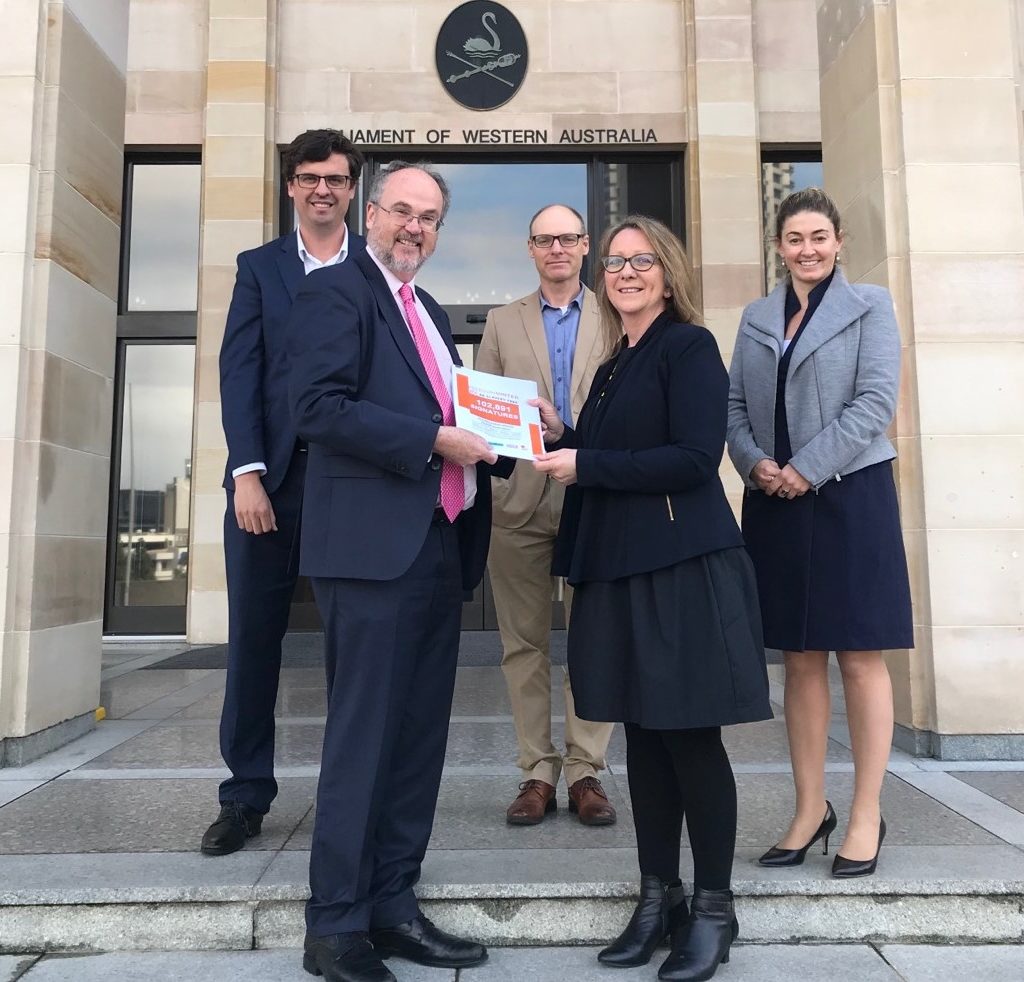On Tuesday 18 August, Western Australia’s Minister for Industrial Relations Bill Johnston, received a petition calling on the state’s Parliament to pass the changes in the Industrial Relations Legislation Amendment Bill 2020 that would bring Western Australia in line with the requirements of the International Labour Organisation’s Forced Labour Protocol of 2014 (P029) and will allow the Commonwealth to ratify the Protocol.
“The important Bill will help better protect vulnerable workers, modernise our employment laws and bring Western Australia in line with the requirements of the International Labour Organisation’s Forced Labour Protocol of 2014,” Mr Johnston said.
The petition was organised by Be Slavery Free and Freedom United. According to the Global Slavery Index more than 40 million people are trapped in modern slavery, with approximately 25 million in forced labour. Australia imports approximately $18 billion worth of products with risk of slavery in the supply chain. Forced labour also occurs in Australia.
Be Slavery Free’s Carolyn Kitto said that the changes to WA’s Industrial Relations laws will, “send a message to businesses that there is a level playing field in Western Australia, where you get ahead by doing the ‘right-thing.”
“Forced labour is crime in Australia’s Criminal Code. More than the law, is it in our Australian values and culture to give people ‘a fair go.’”
The ILO has identified eight “fundamental” Conventions, covering subjects that are considered to be fundamental principles and rights at work. Protocol P29 is part of one of these eight Conventions specifically designed to reduce the number of people trapped on farms, in mines, factories, restaurants and homes where unpaid wages, forced labour and modern slavery often flourishes. It is an addition to the 1930 Forced Labour Convention Australia has already committed to. The Convention’s purpose is to suppress the use of forced or compulsory labour.
The changes to the laws also fix anomalies which sanctioned injustices in the past. When WA’s Industrial Relations laws were first legislated in 1912, and revised in 1941, horticultural and domestic workers received no protections. This particularly impacted Indigenous Western Australians, denying them access to basic freedoms and protection from the law.
The petition comes at a time when anti-slavery NGOs say that the world’s poorest are being made vulnerable to exploitative work. The economic recession caused by COVID-19 is said to be exacerbating human trafficking, as it has shrunk formal employment and increased irregular global migration.













